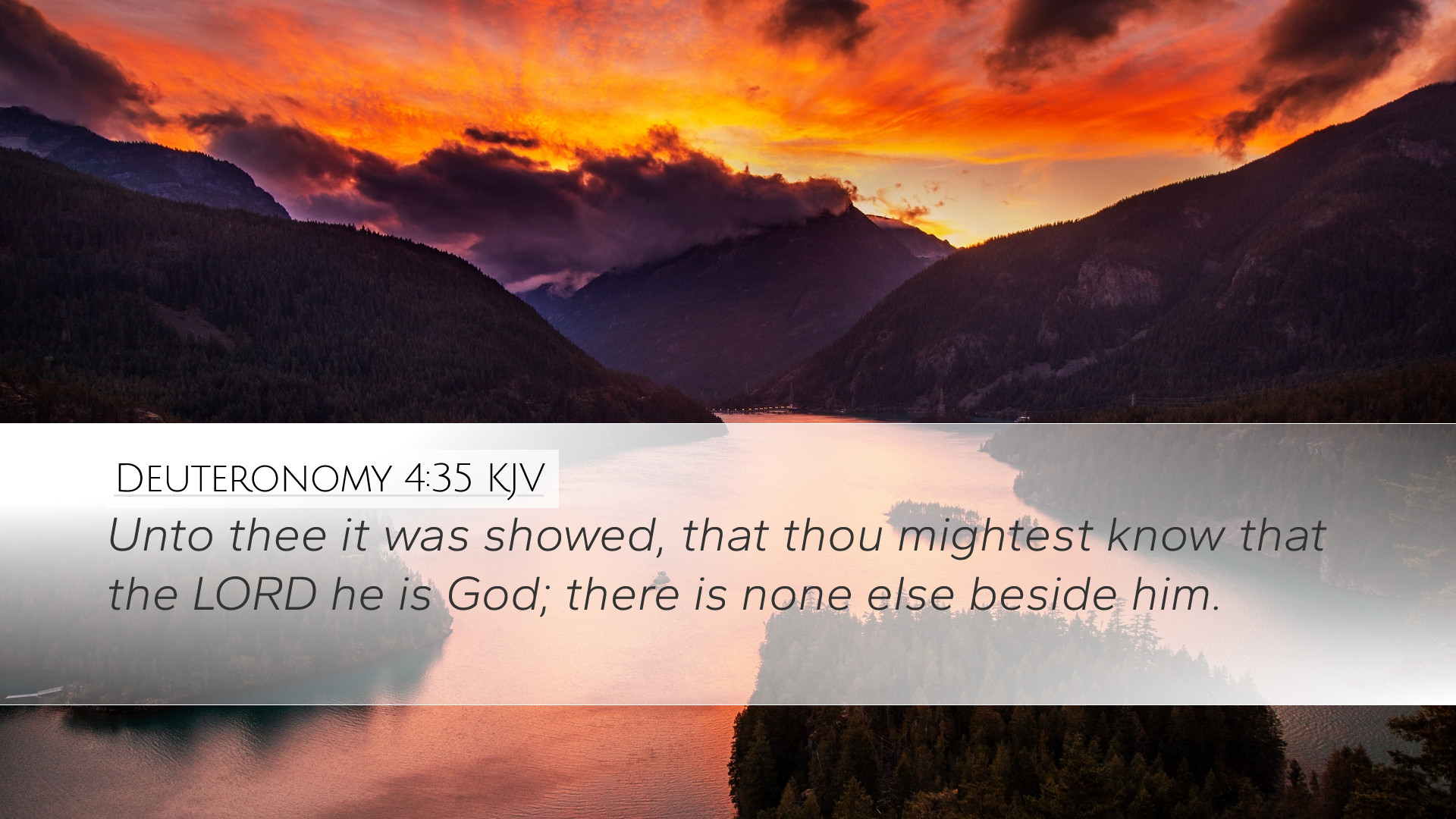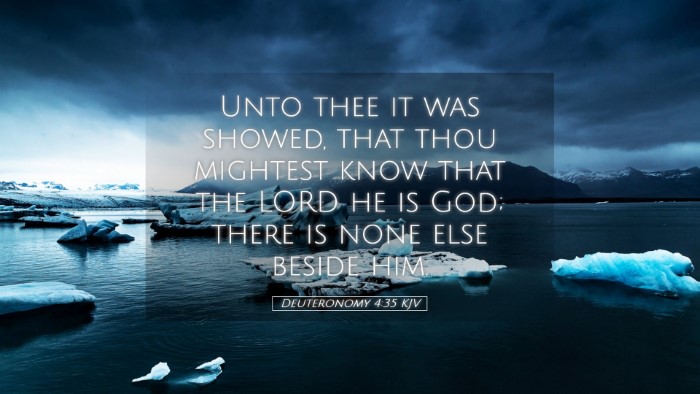Commentary on Deuteronomy 4:35
Deuteronomy 4:35 states, "Unto thee it was shewed, that thou mightest know that the LORD he is God; there is none else beside him." This verse encapsulates the essence of God's unique sovereignty and the purpose behind divine revelation. It serves as a reminder to the people of Israel about their covenant relationship with God and the singularity of His nature.
Introduction
This verse is a part of Moses' address to the Israelites as they stand on the verge of entering the Promised Land. It draws attention to the revealing nature of God, emphasizing that He alone is God, separate from all other entities that may claim such status.
Theological Implications
Commentators like Matthew Henry, Albert Barnes, and Adam Clarke emphasize several key theological implications of this verse:
- The Exclusivity of God: The assertion that "there is none else beside him" stresses the monotheistic foundation of Israel’s faith. God is unique, and this uniqueness sets the groundwork for their worship and obedience.
- The Purpose of Revelation: The phrase "it was shewed" implies that God's acts and words revealed to Israel were intentional. They are meant to help the people recognize His identity and authority.
- Covenantal Context: Henry points out that the Israelites are reminded of their covenant; understanding who God is strengthens their commitment to follow Him.
Matthew Henry's Insights
Matthew Henry elaborates on the significance of divine revelation in this verse. He notes that God has made Himself known through His powerful acts and statutes, making it clear to the Israelites that they are to worship Him alone. Henry states that the knowledge of God's singularity is critical in their preparation to inhabit the land that He promised. The reminder serves not only to inform but also to instruct the people on the necessity of devotion to the one true God.
Albert Barnes' Commentary
Albert Barnes focuses on the didactic nature of this revelation. He emphasizes that God's purpose in demonstrating His omnipotence and singularity was to instill in the hearts of His people a sense of awe and devotion. Barnes argues that this acknowledgment of God's uniqueness strengthens moral and ethical obligations, setting the foundation for the laws that follow in the subsequent chapters.
He also highlights the importance of recognizing God's sovereignty in both historical and personal contexts. By affirming His uniqueness, believers are called to trust Him wholly, demonstrating reliance in every aspect of their lives.
Adam Clarke's Exposition
Adam Clarke provides a detailed analysis of the implications of God's singularity on the lives of the Israelites. His commentary suggests that Moses was keenly aware of the influences of surrounding nations, which worshiped multiple deities. Clarke points out that the assertion of the “LORD” as the sole deity was not merely theological but societal; it was imperative for the Israelites to comprehend and affirm their identity as God’s chosen people in contrast to pagan practices.
Clarke also touches on the transformational aspect of knowing God. He states that understanding that "the LORD he is God" should lead to a profound change in behavior, worship, and community life. It serves as a catalyst for moral living and a reminder of their divine calling.
Applications for Today
The insights from these esteemed commentators converge on several key applications for modern believers:
- Worship in Spirit and Truth: Understanding the nature of God as unique encourages believers to worship Him genuinely, free from the distractions of polytheistic tendencies seen in various cultures today.
- Commitment to Covenant Living: Just as Israel was reminded of their covenant, Christians today are called to live in accordance with their commitment to God, recognizing His authority over their lives.
- Awareness of Influence: Awareness of secular influences that distort the perception of God is paramount. This verse reminds believers to uphold the truth of God's singularity amidst a pluralistic society.
Conclusion
Deuteronomy 4:35 serves as a powerful declaration of God's uniqueness and a profound reminder of His relationship with His people. The insights from public domain commentators enhance our understanding of this verse, highlighting its significance in the historical context of Israel and its continuing relevance in the faith journey of believers today. As pastors, students, and theologians reflect on this text, may they find inspiration to lead lives that bear witness to the truth that "the LORD he is God; there is none else beside him."


